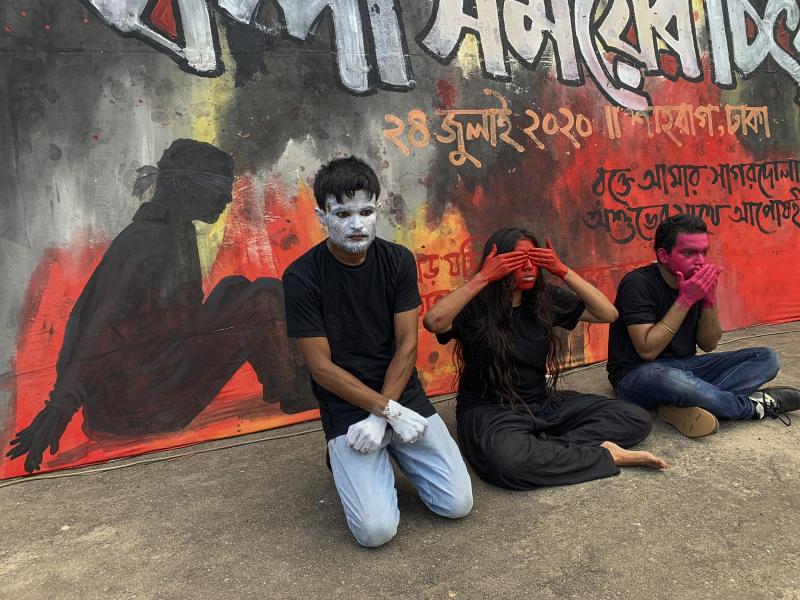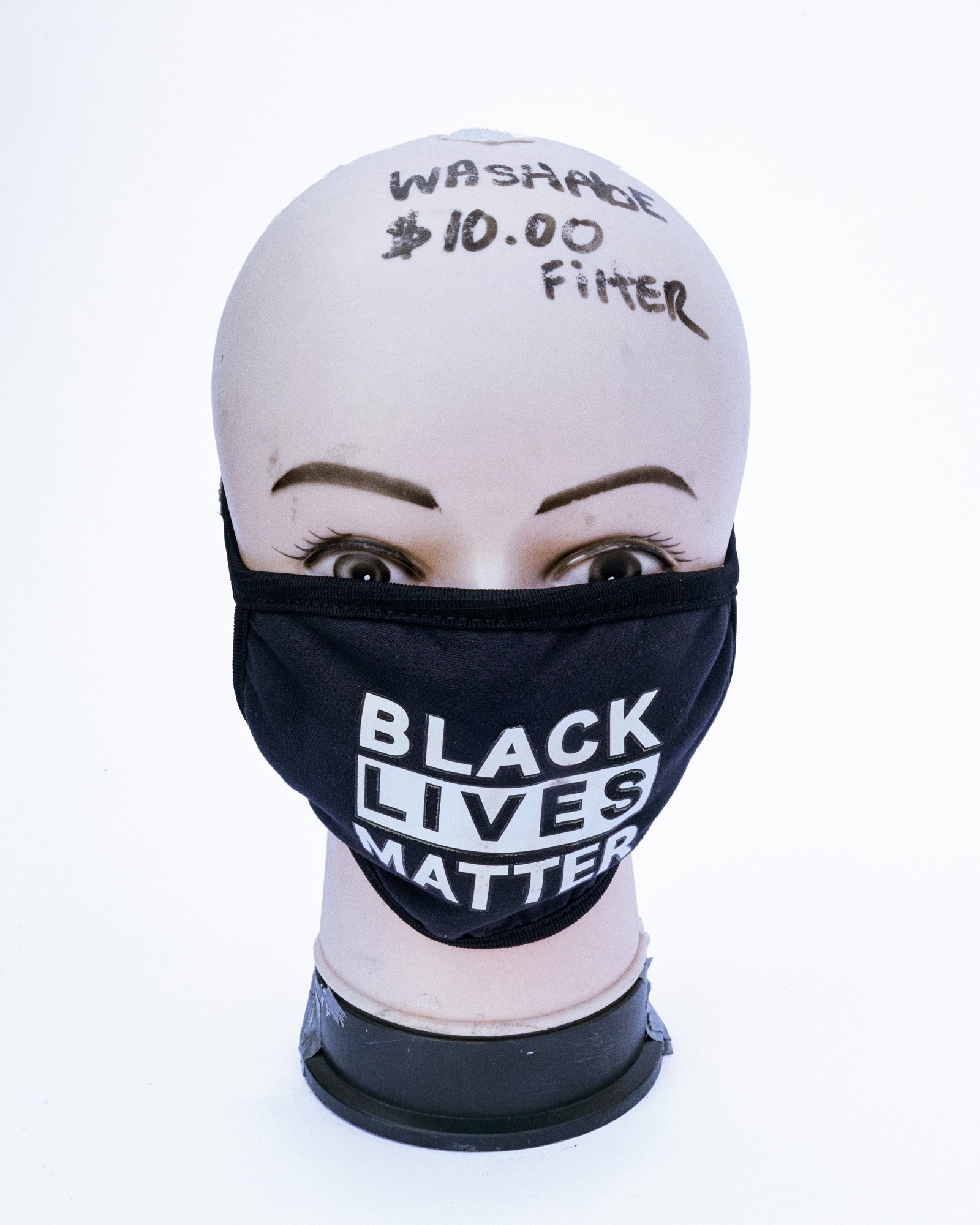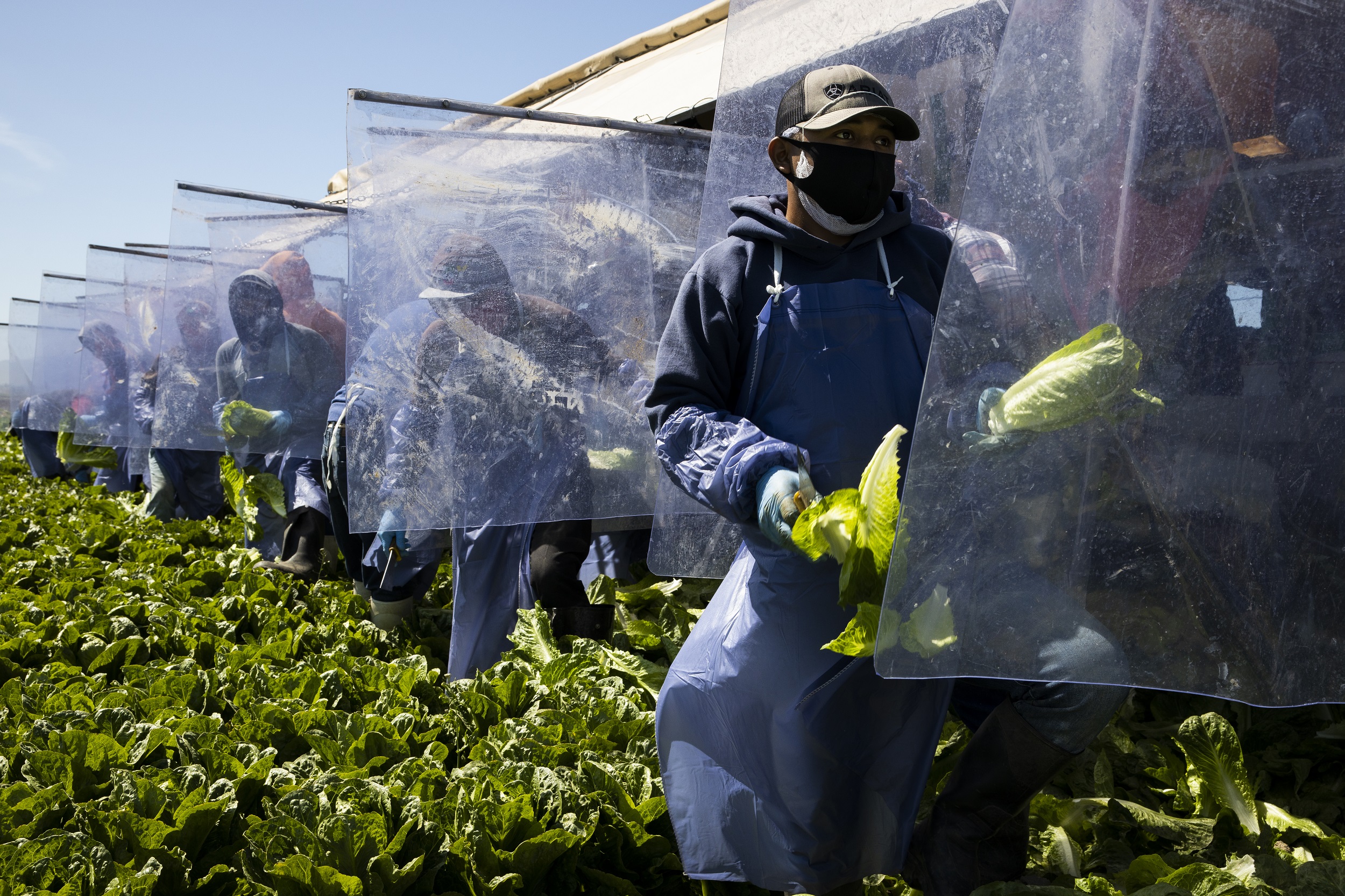Prix Pictet: Confinement review - a year in photographs | reviews, news & interviews
Prix Pictet: Confinement review - a year in photographs
Prix Pictet: Confinement review - a year in photographs
Prize-winning photographers respond to the pandemic

Sustainability and the environment are watchwords for the Prix Pictet, the international photography prize now in its ninth cycle.
Last year, four of the 88 living photographers shortlisted for the prize to date were commissioned in a joint project with The Guardian, their brief to move beyond fast emerging Covid tropes, of “deserted cityscapes, overflowing hospitals and returning wildlife”, and instead to “point a way forward.” The brief was then extended to all 88 photographers, resulting in Confinement, a book containing work by 43 contributors, including the four Guardian commissions.
 Ross McDonell’s face masks are loaded with the politics of race and identity, the relationship between Covid and racial discrimination as powerfully conveyed by masks labelled “African” and “Tribal”, as one reading "Black Lives Matter” (pictured right). For Nayaba Léon Ouedraogo, the traditional masks of Burkina Faso become an extension of the body, transcending individual identity to create a cultural continuum across time and place.
Ross McDonell’s face masks are loaded with the politics of race and identity, the relationship between Covid and racial discrimination as powerfully conveyed by masks labelled “African” and “Tribal”, as one reading "Black Lives Matter” (pictured right). For Nayaba Léon Ouedraogo, the traditional masks of Burkina Faso become an extension of the body, transcending individual identity to create a cultural continuum across time and place.
Covid and Black Lives Matter intersect again in two pictures by the American photojournalist Ed Kashi, whose more traditional documentary approach places in tension the disproportionate suffering of BAME people and the compassion and fear of those on the front line.
With only one or two photographs from each artist, the book doesn’t function as a substitute exhibition, which under the circumstances, and given the usual format of the Prix Pictet, would feel appropriate. Certainly, I would have liked far more pictures from Rena Effendi, whose adopted city of Istanbul is a ghostly background presence in portraits of a hamam scrubber and a drag artist (pictured below left), who pause, listless, waiting for the city to come back to life. Happily, Effendi’s photo story about Istanbul’s “non-essential” workers is among the Guardian commissions, and so can be viewed in full, online.
 For the most part, the book looks beyond personal and regional experiences of the pandemic to produce a global picture of inequality, that in all its forms and manifestations can be boiled down to the exploitation of resources by industrialised countries at the expense of the least developed. According to the Ugandan fiction writer Jennifer Nansubuga Makumbi, who has written an introductory essay, the pandemic has brought “home to the centred world the fact that humanity is part of nature, that nature has creative ways of regulating itself.” In arming ourselves against a recurrence, we need to demonstrate our preparedness, which, she believes “would push humanity to come up with cleaner ways of living, and sooner.”
For the most part, the book looks beyond personal and regional experiences of the pandemic to produce a global picture of inequality, that in all its forms and manifestations can be boiled down to the exploitation of resources by industrialised countries at the expense of the least developed. According to the Ugandan fiction writer Jennifer Nansubuga Makumbi, who has written an introductory essay, the pandemic has brought “home to the centred world the fact that humanity is part of nature, that nature has creative ways of regulating itself.” In arming ourselves against a recurrence, we need to demonstrate our preparedness, which, she believes “would push humanity to come up with cleaner ways of living, and sooner.”
Mandy Barker’s planets seem far removed from such earthly concerns – except these strange bodies are not planets at all, they are plastic fishing buoys recovered from Henderson Island in the South Pacific, one of only two coral atolls that risks destruction by vast accumulations of plastic waste.
The demands of consumerism are constantly implicated in the risk and harm inflicted on the planet, and its most exploited populations. The American photographer and sculptor Mary Mattingly records the changes to the face of the planet that amount to “environmental tipping points”; Brent Stirton shows masked agricultural labourers harvesting lettuces behind plexiglass screens (pictured below).
 Covid has provided an opportunity for repressive regimes to close down communications with the outside world, and impose even greater limits and scrutiny on their citizens. Bangladesh’s highly controversial Digital Security Act was passed in 2018, and has been enforced rigorously during Covid, according to Shahidul Alam, whose photograph of artists protesting against the act, used to arrest artists and writers during the pandemic, is one of the book’s most breathtaking images (main picture).
Covid has provided an opportunity for repressive regimes to close down communications with the outside world, and impose even greater limits and scrutiny on their citizens. Bangladesh’s highly controversial Digital Security Act was passed in 2018, and has been enforced rigorously during Covid, according to Shahidul Alam, whose photograph of artists protesting against the act, used to arrest artists and writers during the pandemic, is one of the book’s most breathtaking images (main picture).
Its a truism to say that photography is by nature outward looking, but it is this characteristic – combined with the campaigning spirit of the Prix Pictet that flavours even the least documentary-inclined contributions – that relieves this landmark project from the solipsistic tendencies that feel inevitable after a year of social distance and isolation. If only the book were bigger – but as it is, this compilation of work by 43 fine photographers from all over the world is the most far-reaching response to Covid, artistic or otherwise, that I have seen so far.
- Confinement by Prix Pictet (teNeues, £29.95)
- View the projects commissioned in collaboration with The Guardian
- Read more visual arts reviews on theartsdesk
rating
Explore topics
Share this article
The future of Arts Journalism
You can stop theartsdesk.com closing!
We urgently need financing to survive. Our fundraising drive has thus far raised £49,000 but we need to reach £100,000 or we will be forced to close. Please contribute here: https://gofund.me/c3f6033d
And if you can forward this information to anyone who might assist, we’d be grateful.

Subscribe to theartsdesk.com
Thank you for continuing to read our work on theartsdesk.com. For unlimited access to every article in its entirety, including our archive of more than 15,000 pieces, we're asking for £5 per month or £40 per year. We feel it's a very good deal, and hope you do too.
To take a subscription now simply click here.
And if you're looking for that extra gift for a friend or family member, why not treat them to a theartsdesk.com gift subscription?

Add comment